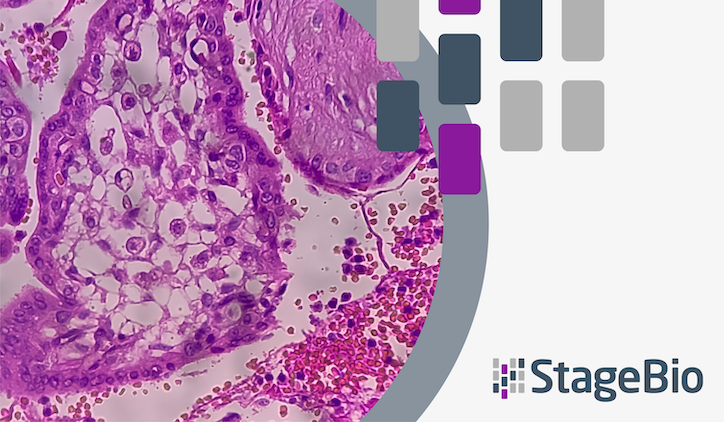Pregnancy requires precise immune regulation. From ovulation to implantation, fetal development, and parturition, the maternal immune system undergoes dynamic changes to support the developing fetus while maintaining the health of the mother. However, the use of immunomodulatory compounds can disrupt immune regulation, potentially resulting in adverse risks and side effects that negatively impact both the health of the mother and the fetus.
How immunomodulators can negatively impact pregnancy
Immunomodulatory compounds are used to treat various conditions, including autoimmune diseases, cancer, and chronic inflammation. While these therapies offer significant benefits, their impact on pregnancy remains a concern. Immunomodulators can interfere with immune processes crucial for pregnancy maintenance, such as maternal-fetal tolerance, angiogenesis, and tissue remodeling.
Senior Pathologist Tracey Papenfuss, DVM, MS, PhD, DACVP, co-authored a 2025 scientific review to evaluate the impact of immunomodulators on pregnancy, detail our current understanding of said impact, and identify research gaps as well as approaches to effective risk assessment.
A detailed scientific review of the potential side effects and risks of immunomodulators on pregnancy outcomes
In their review, Dr. Papenfuss and her fellow researchers included the following topics:
- An extensive review of published literature to gather data on the biological pathways targeted by immunomodulators and their roles in pregnancy
- Fundamental concepts related to immune mechanisms and immunoregulation in pregnancy, current methods for nonclinical safety assessments
- Two surveys of industry practices to understand how government institutions, pharmaceutical companies, and CROs assess pregnancy risks associated with immunomodulators
- A workshop to discuss the latest scientific understanding of reproductive immunology, share insights on nonclinical safety assessments, explore gaps in current methodologies, and propose strategies for risk assessment
- An analysis of data from animal studies to understand the potential hazards of immunomodulators to patients
- An analysis of the practical and effective use of biomarkers to predict adverse pregnancy outcomes
- An examination of case studies on marketed immunomodulators to understand how reproductive risks were assessed and communicated in product labeling
- Highlighting the remaining gaps and unanswered questions in this field
Key findings and takeaways regarding the impact of immunomodulators on pregnancy
The review, published in the Journal of Reproductive Immunology and titled “Assessing the impact and risk of immunomodulatory compounds on pregnancy,” identified the following gaps in research regarding the use of immunomodulators during pregnancy:
Gaps in research
Incomplete understanding of immune pathways
Pregnancy complications can stem from disruptions in immune processes (e.g., elevated Th1 cytokines or reduced Treg activity). However, the precise roles of Th1, Th2, Tregs, and Th17 cells in pregnancy are not fully demonstrated, making it difficult to predict the effects of modulating these pathways with immunomodulators.
Challenges of animal models
Differences in immune processes between humans and animals complicate the translation of experimental findings and limit confidence when evaluating the impact of immunomodulators on pregnancy.
Lack of reliable or validated biomarkers and temporal insight
Reliable biomarkers capable of monitoring maternal-fetal tolerance and predicting adverse pregnancy outcomes are still being validated. Current studies also lack sufficient detail on when during pregnancy (early vs late gestation) various risks are most likely to occur.
Recommendations to improve research on the impact of immunomodulators on pregnancy
Enhance preclinical models to improve human translatability
Developing validated in vitro systems (e.g., placenta-on-a-chip) and refining current animal models can improve confidence in translating findings to human pregnancy.
Integrate multiomics data and AI to address mechanistic gaps
Modeling immune pathways using multiomics data and AI tools can help predict pregnancy outcomes and better characterize the roles of specific immune cell types.
Build a collaborative knowledge base
Sharing data from marketed drugs and conducting joint studies will help close existing research gaps and accelerate development of more predictive technologies and methods.
Understanding the complex relationship between immunomodulators and pregnancy
Immunomodulatory therapies hold immense potential for treating various diseases, but their impact on pregnancy requires careful evaluation. By integrating nonclinical studies, literature reviews, and emerging technologies, researchers can better understand the risks and guide clinical decision-making. While challenges remain, advancements in reproductive immunology and toxicology promise to improve the safety of immunomodulators for pregnant patients, ensuring healthier outcomes for both mothers and their babies.
Access the full review published in the Journal of Reproductive Immunology
Download the scientific review here for a more in-depth, comprehensive analysis of the current methods and challenges associated with assessing the risks of immunomodulatory compounds on pregnancy outcomes.
